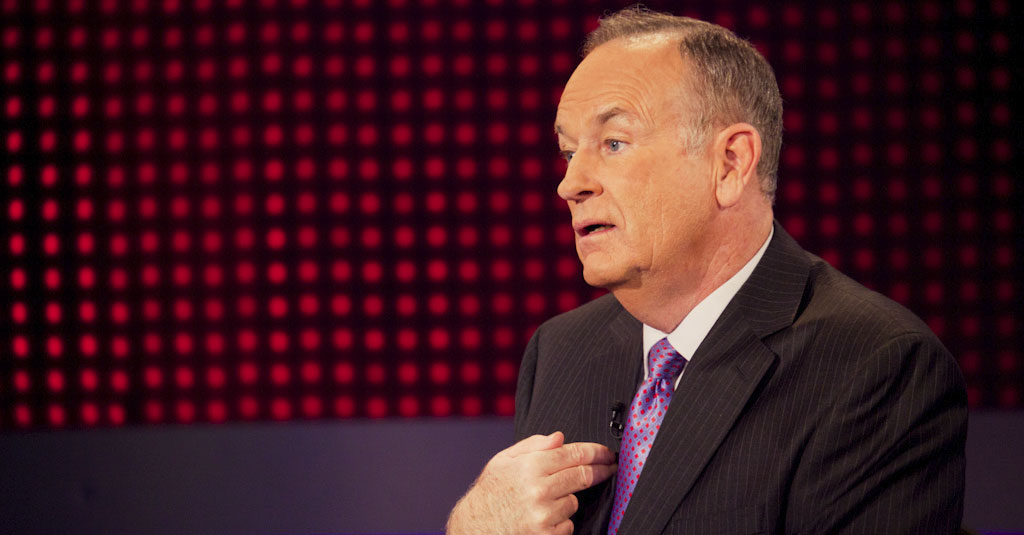 Revelations that Bill O'Reilly may have misled viewers about his reporting from the Falklands War back in 1982 are drawing fire from veteran war correspondents who contend apparent embellishments like O'Reilly's hurt the credibility of all combat journalists.
Revelations that Bill O'Reilly may have misled viewers about his reporting from the Falklands War back in 1982 are drawing fire from veteran war correspondents who contend apparent embellishments like O'Reilly's hurt the credibility of all combat journalists.
On Thursday, Mother Jones reported that O'Reilly “repeatedly told his audience that he was a war correspondent during the Falklands war and that he experienced combat during that 1982 conflict between England and Argentina. He has often invoked this experience to emphasize that he understands war as only someone who has witnessed it could. As he once put it, 'I've been there. That's really what separates me from most of these other bloviators. I bloviate, but I bloviate about stuff I've seen. They bloviate about stuff that they haven't.'”
The magazine went on to note that American journalists were not allowed near the Falkland Islands in that conflict, even citing a CBS News producer who worked on the coverage. The findings follow O'Reilly's criticism of NBC News anchor Brian Williams, who was recently suspended for misleading viewers about his own combat experience.
In comments to Media Matters, war correspondents criticized media figures like O'Reilly for “exaggerating” their experiences.
“I have no patience with journalists exaggerating their role as derring-do types when they're trying to report the news, it's not about us, it's about the news,” Don North, a former ABC News and NBC News war correspondent who has covered conflicts from Vietnam to El Salvador, said of O'Reilly. “I think many journalists, all of us probably, have had some attitude toward perhaps embellishing or writing a more dramatic story, but it's a discipline you've got to watch. It's Journalism 101. You don't exaggerate, you don't lie about it.”
“I'm concerned about the damage this is doing to journalists everywhere,” Sig Christenson, a founding member of Military Reporters and Editors who has covered Iraq and Afghanistan warfare for the San Antonio Express-News, said about O'Reilly. “When people see these stories and then they are called into question it makes the rest of us look bad. We are at a really critical point in our business and our credibility matters. If I am introduced as someone who was in combat will people even believe it?”
He also took O'Reilly to task for having recently been critical of Brian Williams.
“If (O'Reilly's) misrepresenting himself and criticizing someone else for misrepresenting himself then he's got problems,” Christenson said. “If Bill O'Reilly's gone out and done something like that, God help him. I know one thing, it's bad for all of us. We don't need it.”
Matt Schofield, a McClatchy national security reporter who has reported from combat in Iraq, said such misleading tales hurt readers and reporters.
“In these sorts of cases, lying about our personal experiences never advances the truth. In fact, anytime we take our focus away from the story and put it upon ourselves, our own adventures, is a disservice to readers and the truth,” he said, later adding, “We don't lie. We search for the truth, and our searching may come up short at points, but we try to tell the truth all the time. If we don't have that credibility, we can't expect the trust of those who come to our sites for information. Without that, we've got nothing.”
Amy McCullough, president of Military Reporters and Editors, agreed such misrepresentations do “severe damage” to journalistic credibility.
"I'm not sure what O'Reilly's role was during the Falklands war, but anytime a journalist embellishes or exaggerates his or her experience in the war zone, it not only does severe damage to his or her own credibility, but to the credibility of all journalists who actually are risking their lives to tell the story," she said via email.
She later added, “After more than a decade of war, many reporters, myself included, have found themselves in Iraq or Afghanistan, or some other 'combat zone,' and never really came close to the hot zone. There is nothing wrong with that, but you have to be honest about your experiences. That's what we do. We tell the truth and this is no different. To do anything else is disrespectful to the service members who spent months and even years away from their families on one deployment after another. It's also disrespectful to journalists who have put themselves in harm's way and witnessed first-hand the atrocities of war.”